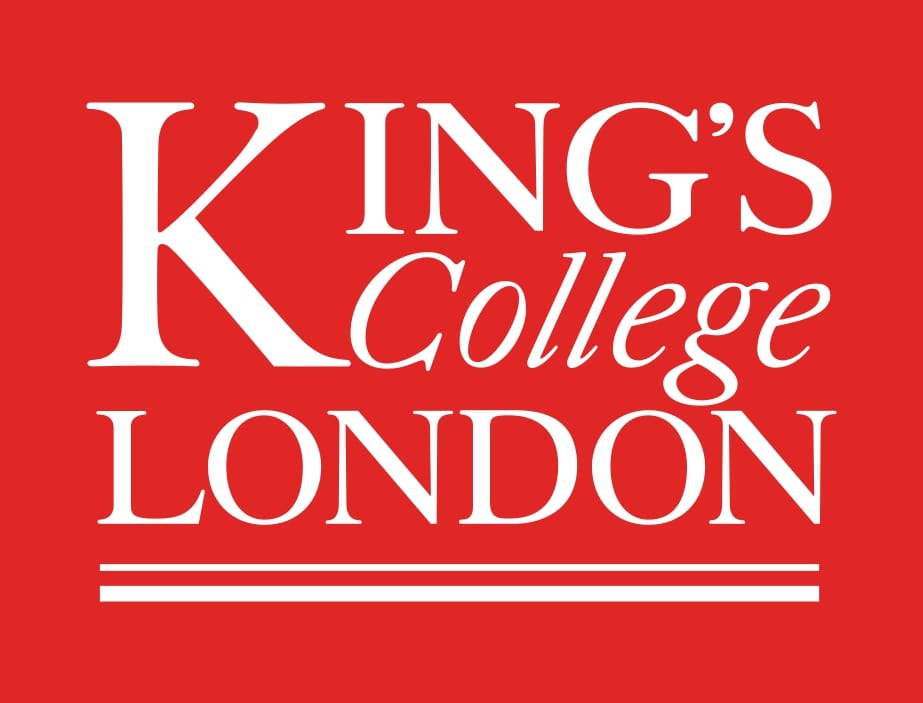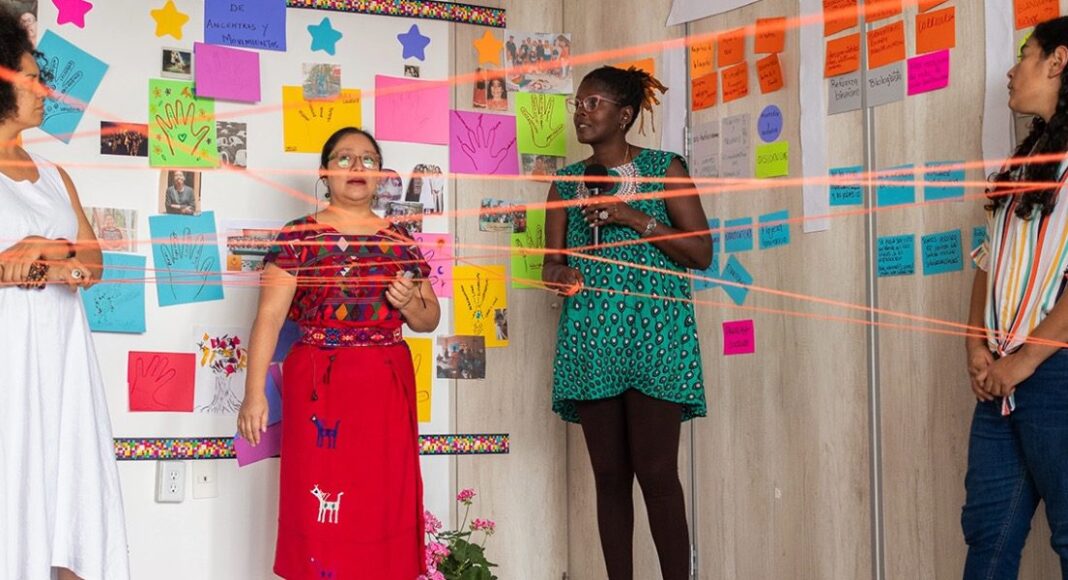The Feminist Movement Building School was held in Mexico City from 28 August to 1 September 2023, organised by JASS Just Associates and the Feminist Centre for Racial Justice.
The school had three aims: for participants to explore the political conditions that frame racial and gender violence in Latin America, to identify the strategies Indigenous and decolonial movements employ to support self-determination and liberation, and to develop pedagogical approaches to exploring racial and gender justice transnationally. It was attended by a diverse group of 15 social movement activists from Mexico, Brazil, Colombia, Panama, Honduras, Dominican Republic, Guatemala, and Costa Rica, where I am from. The diversity of mindset, life experience, gender identity, background, race, and age were a huge asset to the school.
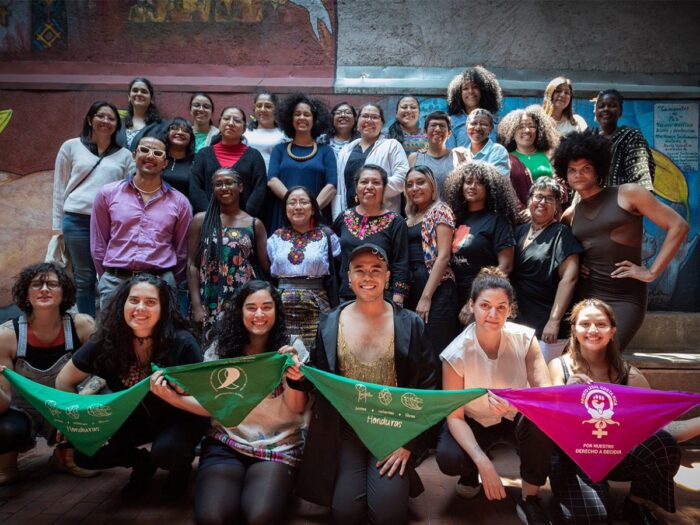
As a queer Latin American feminist, my commitment to social justice has led me to work with various organisations, both as an activist and a volunteer. I am currently a bachelor student in Social Work, and I have studied many topics related to human rights, accessibility, decriminalisation of abortion, sexual and re-productive rights, and impact measurement of social programmes. Throughout my journey, I have learned that interdisciplinary and intersectional frameworks are necessary given the current socio-political context in Latin America, where neoliberalism, police violence, criminalisation of collective power, transphobia, anti-blackness, and anti-rights fundamentalisms are threatening everything we are fighting for.
These experiences motivated me to apply to the school. From the moment I read the call for applications, I knew that this opportunity was essential to expanding my knowledge, skills, and impact in the field of anti-racism and Indigenous rights advocacy. I made the right decision.
Each day of the school had a specific focus, leading us to reflect on power, identity, movements, and transnational solidarity. These sessions were developed through a creative methodology including the construction of timelines, dialogue circles, small rituals, case analyses, collective murals, and the recording of a podcast.
We also visited Serapaz, an inspiring Mexican non-profit organisation that provides services for peace, justice, and dignity by accompanying and empowering diverse social actors, especially Indigenous people.
From the very beginning, it was clear that every single detail had been carefully thought out by the remarkable team. The approach was innovative and unconventional which meant discussing from a position of kindness, allowing us to find answers together, to ask new questions, and to question everything in creative and colourful ways. The use of feminist theories and a feminist popular education pedagogy was essential to the co-creation of an atmosphere of trust that was present each day.
Main takeaways from The Feminist Movement Building School
One of the themes that was widely addressed was the ways in which racism is essential to the advance of colonialism, and how understanding this is key to thinking through strategies that cut anti-blackness at its very root, opening up space to cultivate coalitions and networks liberated from racist oppression.
We repeatedly discussed the various ways in which different oppressions are expressed in our territories. This allowed us to observe that, although we are based in different regions, issues such as the opposition to comprehensive sex education, the anti-abortion agenda, and the denial of Indigenous territories are widespread.
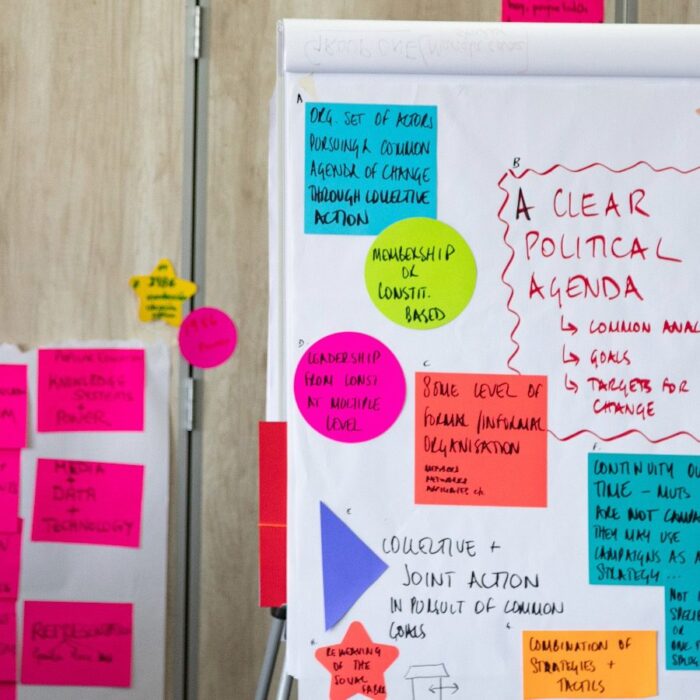
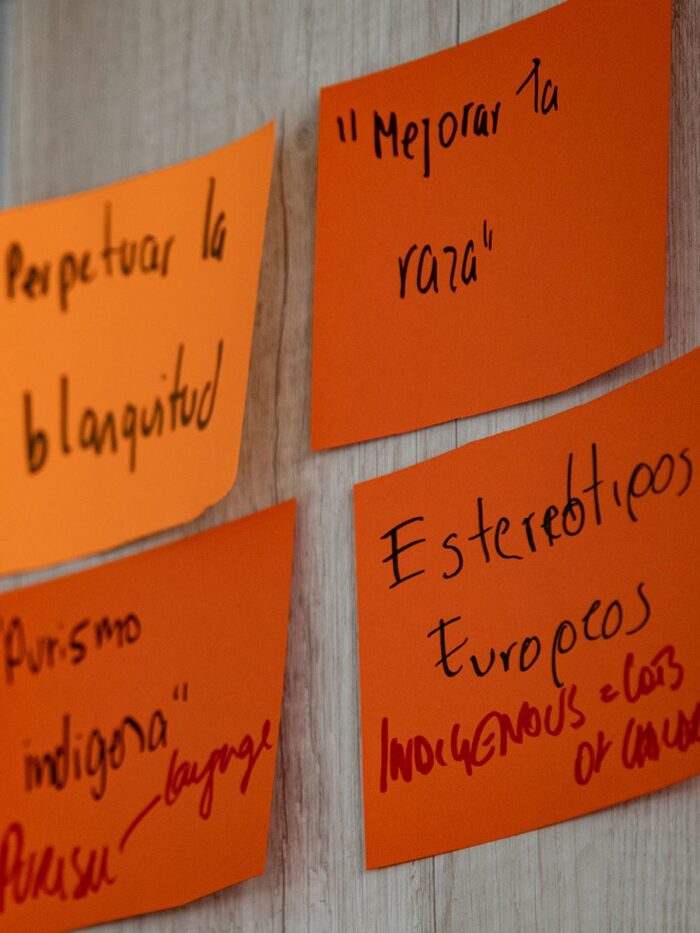
Something I learned that has changed the way I think about violence is that power is not necessarily harmful and that there is not just one kind of power. We had the opportunity to debate visible, invisible, hidden, and systemic power. These forms of power include the establishment of norms, the shaping of these norms, the setting of agendas, and the definition of the underlying logic that structures social and economic agreements.
Looking at power in this way allows us to be strategic and to recognise ourselves as powerful. This is fundamental to resisting and defying the violent realities we experience, from the culture of anti-blackness and the erasure of Indigenous memories, to the replication of knowledge extractivism that academia often performs.
Looking at power in this way allows us to be strategic and to recognise ourselves as powerful.
Another crucial point we discussed was the importance of addressing trans-exclusive, colonialist, and racist attitudes within the movement and more widely in society. This harsh reality must be recognised and actively confronted. While there is no single way to achieve justice, it is of utmost importance to prioritise and actively work towards achieving racial justice and to deeply engage with the voices of Black, Indigenous, and trans people.
The school made us realise that we actually have hope to replace the existing logics in society with more equitable, just, and sustainable ones, even if there is no magic formula to dissolve all oppressions. We all agreed that this can only be achieved through collective care, inclusion, and a deep inner reflection on how we often reinforce these oppressions without being aware of it. Being open to feedback, embracing our contradictions, and being confident in our valuable work will be the path to this transformation.
We need to ask why so many feminist activism spaces lack the participation of Black, trans, and Indigenous people. Which patterns of oppression are we reproducing to the extent that the spaces we want to be safe are not safe for all? What are we actively doing to ensure diverse and inclusive spaces where there is room for all? We all agreed that spaces like this, where Black, trans, Latin, queer, Indigenous, non-binary, and age diverse people are welcomed, embraced, and cared for. This would disrupt outdated colonial hierarchies and contribute to the revolution we are seeking.
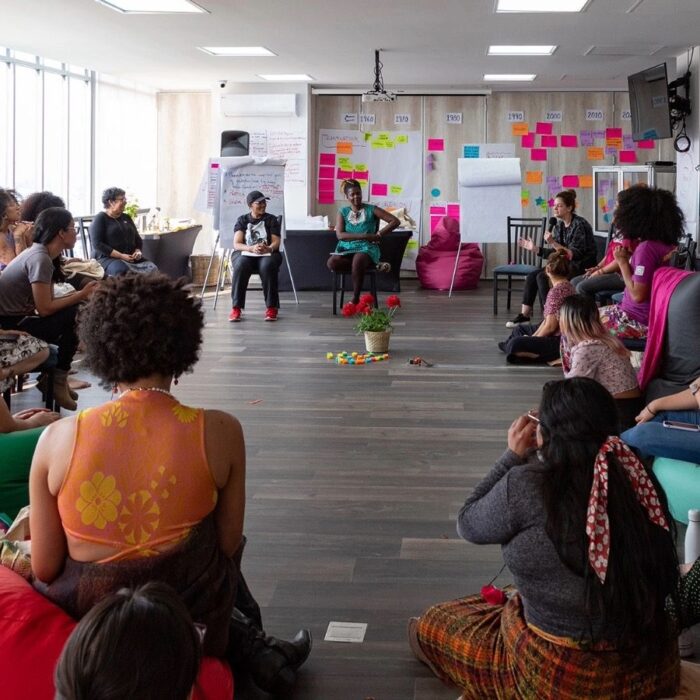
Another point we discussed is how the current economic structure pushes us towards the erasure of our differences and diversity. Recognising that we are not the same and that we are not all oppressed in the same way is essential for our fights to be truly transformative. Adherence to an inflexible structure in which we are all forged in the same way is essential to the expansion of capital, and its disruption becomes an act of emancipation.
Although social activism spaces are always demanding in terms of energy, time and effort, this particular experience was also an opportunity to rest the mind and knit significant networks of love and connection between participants.
Don’t let theory blur your empathy
These connections are some of the most meaningful and profound I have experienced in my life. For me, the depth that we can achieve in human relationships, especially in a world where capitalism pushes us to be more and more isolated and disconnected, is a vital everyday revolution.
Finally, the expression ‘don’t let theory blur your empathy’ reflects a key learning. Although all these spaces for thinking, reflecting, and critically analysing our realities are fundamental, they would not be so useful if we failed to acknowledge that the ultimate revolution takes place outside, in the streets, in everyday life, and it involves all people, especially those who do not have the privilege of attending schools like this one.
The Feminist Movement Building School reaffirmed my belief that there is an unstoppable force in dreaming up new worlds rooted in community, caring, and collective strength. We can create them together: there is hope despite the complexity.
Daniela Cortés Vargas is a Costa Rican feminist activist and advisor to FRIDA The Young Feminist Fund. She studies Social Work at the University of Costa Rica.
The Feminist Centre for Racial Justice aims to recentre the global South as a primary site from which to reframe global narratives on racialised and intersectional gender justice.
JASS (Just Associates) is a feminist movement strengthening and support organisation anchored in the Global South, with their roots in liberation movements and the experiences of womxn on the frontlines the source of their organising work.
This pilot school was supported by Ford Foundation.
